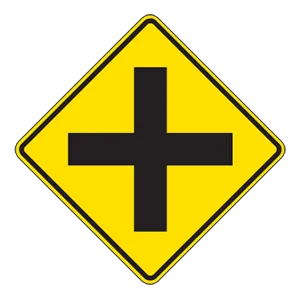Motorcycle Test | License NJ 2025 | FREE Online Practice! #3 Page 7 of 7
Take this FREE motorcycle test (license in NJ 2025) to check your knowledge of the road rules. To improve your results, download a motorcycle handbook online, study theory, and practice for free on our website. Still worried about how to get a motorcycle license in New Jersey in 2025? Check our website for more sample tests, train as much as possible, and boost your grades!
43 . When going through a turn on a motorcycle, you should:
When making a turn, you should look through the turn to where you want to go. Turn just your head, not your shoulders, and keep your eyes level with the horizon.
44 . Your lane position should do all of the following, except:
A well-chosen lane position should increase your ability to see and be seen and keep you out of other drivers' blind spots. It should help you avoid surface hazards, protect your lane from other drivers, communicate your intentions to others, help you avoid wind blasts from other vehicles, and offer you an escape route from any hazards that may arise.
45 . A way to lower the risk of being involved in a crash is to:
To reduce the risk of being involved in a crash, you should always ensure that you are visible to others. Communicate your intentions through proper use of your signals, brake light, and lane position. Maintain a space cushion around your motorcycle and consistently scan the road ahead of, behind, and next to your vehicle.
46 . When planning to ride with a group of 12 riders, you should:
Groups that are larger than four or five riders should split into smaller groups. A large group can interfere with traffic. It is easy for a large group to be separated while traveling, which may prompt some riders to take unsafe risks to catch up to the rest of the group.
47 . If your motorcycle begins to wobble, you should:
Trying to accelerate out of a wobble will only increase the problem. Instead, grip the handlebars firmly, slow down while gradually closing the throttle, move your weight as far forward and downward as you can, and pull off the road as soon as you can. Once off the road, you should address the problem causing the wobble.
48 . The front brake:
The front brake is much more powerful than the rear one and provides at least 70 percent of a motorcycle's total stopping power. Use both brakes every time you slow or stop.
49 . This sign means:

Warning signs prepare drivers for upcoming road conditions and hazards and are usually yellow with black markings. This sign alerts drivers to an upcoming intersection.
50 . When traveling on wet pavement, a motorcycle rider:
Under wet conditions, it is recommended that you avoid the oily center strip of the lane and ride in the wheel tracks left by vehicles ahead.
See the exact questions that will be on the 2025 New Jersey DMV exam.
99.2% of people who use the cheat sheet pass the FIRST TIME
Jeneen was tired of paying $5/gallon. She got herself a scooter that required the motorcycle license. She studyed the motorcycle test cheat sheet and passed her test the next day!
Christopher tells us how he knew nothing prior to obtaining the motorcycle study guide, and he only got one question wrong because he clicked on the wrong answer by mistake.



